
Simokerto: The Hidden Gem of Surabaya
Simokerto in Surabaya is a neighborhood where tradition meets the modern world. This district offers an authentic look into the daily lives of local Indonesians, far from the hustle and bustle of the city center. Here, you can stroll through narrow streets lined with charming houses and small shops, offering a fascinating glimpse into local culture and traditions. One of the highlights of Simokerto is its vibrant markets. These bustling spots are perfect for experiencing the rich flavors and aromas of Indonesian cuisine. Sample delicious street food, from satay to fresh tropical fruits. For those interested in history, the neighborhood features several historic sites that tell the story of Surabaya's past. Simokerto is also known for its friendly and welcoming residents. Visitors are often greeted with smiles and warmth, making it a great place to interact with locals and learn more about their way of life. Whether you're interested in culture, food, or history, Simokerto provides a unique and enriching experience for any tourist.
Local tips in Simokerto
- Visit the local markets in the morning to experience the freshest produce and street food.
- Wear comfortable walking shoes as the streets can be narrow and uneven.
- Learn a few basic Indonesian phrases; locals appreciate the effort and it enhances your experience.
- Bring cash, as many small shops and food vendors do not accept credit cards.
- Respect local customs and dress modestly when visiting religious or historical sites.
Simokerto: The Hidden Gem of Surabaya
Simokerto in Surabaya is a neighborhood where tradition meets the modern world. This district offers an authentic look into the daily lives of local Indonesians, far from the hustle and bustle of the city center. Here, you can stroll through narrow streets lined with charming houses and small shops, offering a fascinating glimpse into local culture and traditions. One of the highlights of Simokerto is its vibrant markets. These bustling spots are perfect for experiencing the rich flavors and aromas of Indonesian cuisine. Sample delicious street food, from satay to fresh tropical fruits. For those interested in history, the neighborhood features several historic sites that tell the story of Surabaya's past. Simokerto is also known for its friendly and welcoming residents. Visitors are often greeted with smiles and warmth, making it a great place to interact with locals and learn more about their way of life. Whether you're interested in culture, food, or history, Simokerto provides a unique and enriching experience for any tourist.
Iconic landmarks you can’t miss
Monumen Tugu Pahlawan dan Museum Sepuluh Nopember Surabaya
Discover the legacy of Indonesia's heroes at Monumen Tugu Pahlawan and Museum Sepuluh Nopember in Surabaya, a historical landmark that offers deep cultural insights.
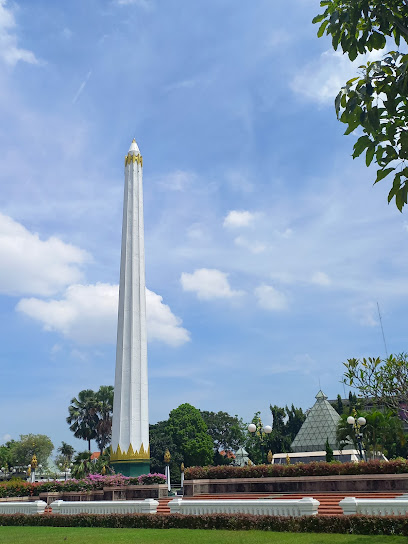
Surabaya Submarine Monument
Discover the Surabaya Submarine Monument, a unique attraction showcasing Indonesia's naval history through an actual retired submarine in the heart of East Java.
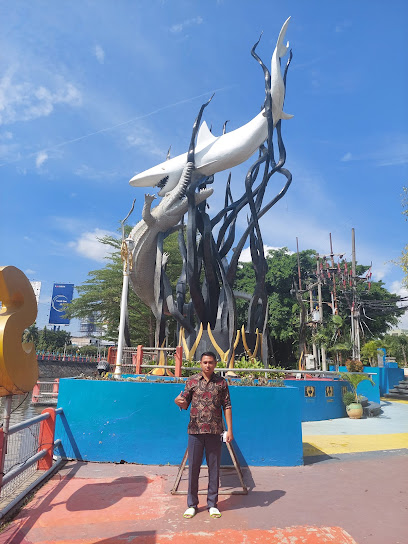
Museum W.R. Soepratman
Explore the rich cultural heritage of Indonesia at Museum W.R. Soepratman in Surabaya, dedicated to the composer of the national anthem.
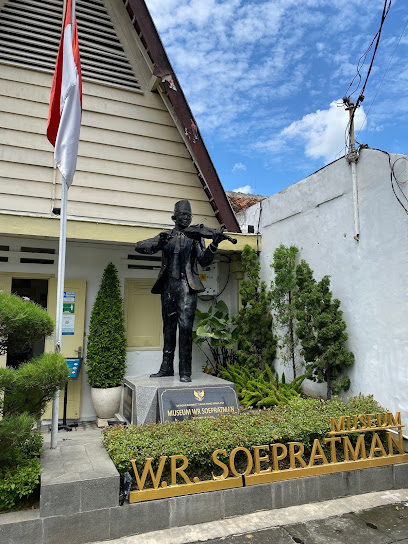
Kota Tua Surabaya
Discover the captivating history and vibrant culture of Kota Tua Surabaya, a historical landmark blending colonial charm with modern-day vibrancy.
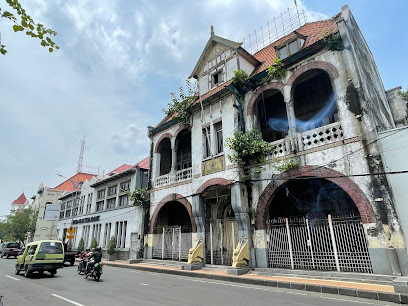
Sidotopo
Experience the vibrant energy of Sidotopo, Surabaya's key train station, and gateway to East Java's rich heritage and culture.
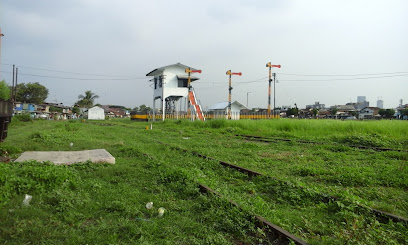
Titik Nol Surabaya
Discover the rich history and vibrant culture at Titik Nol Surabaya, the heart of East Java's largest city.
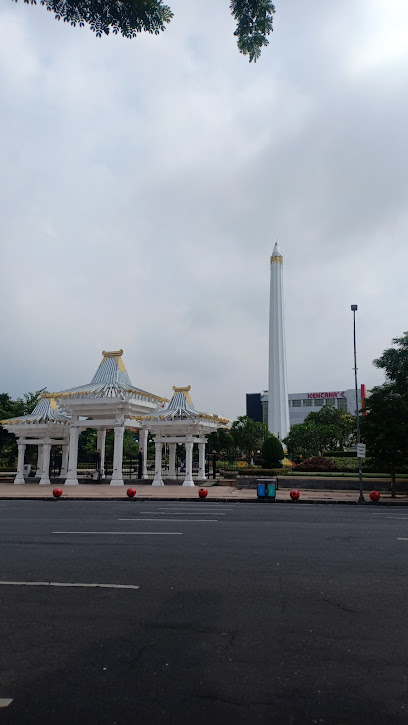
Uitkijkpost in Kalimas Soerabaia - Menara Syahbandar - Havenmeester Kalimas
Explore the rich maritime heritage of Surabaya at Menara Syahbandar, a historical landmark offering stunning views and cultural insights.
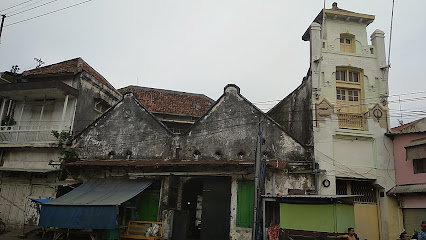
Kampung Seng
Explore the historical heart of Surabaya at Kampung Seng, a vibrant neighborhood filled with culture, cuisine, and charming architecture.
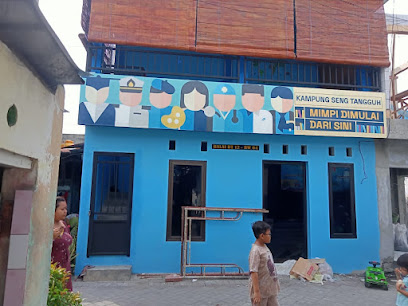
Klokkentoren van Lindeteves-Stokvis
Explore the Klokkentoren van Lindeteves-Stokvis, a stunning historical landmark in Surabaya, East Java, blending colonial charm with cultural significance.
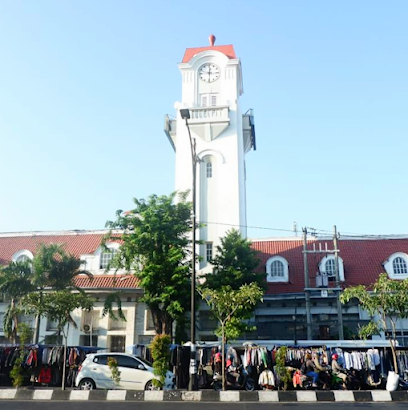
Spot Kota Tua
Explore Spot Kota Tua in Surabaya, where history meets culture in a vibrant atmosphere of colonial architecture and local traditions.
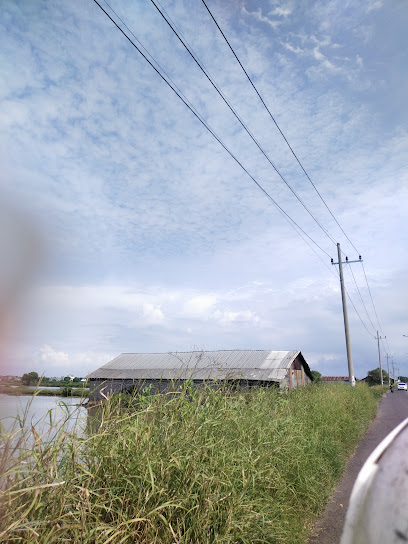
Unmissable attractions to see
Apsari Park
Discover Apsari Park in Surabaya, a vibrant urban oasis with lush greenery, delicious food, and serene walking paths perfect for relaxation and leisure.
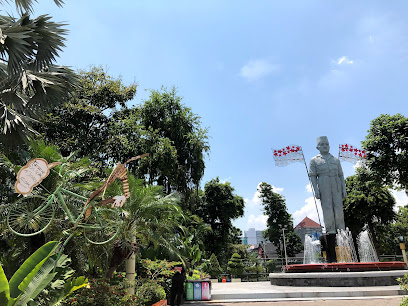
Muhammad Cheng Hoo Mosque
Explore the Muhammad Cheng Hoo Mosque in Surabaya, a stunning fusion of Islamic and Chinese architecture, rich in culture and history.
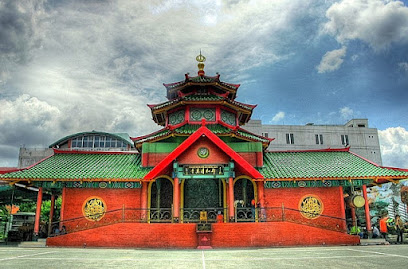
Kya Kya Surabaya
Explore Kya Kya Surabaya, a vibrant tourist attraction and historical landmark offering an immersive experience of East Java's rich culture and delicious street food.
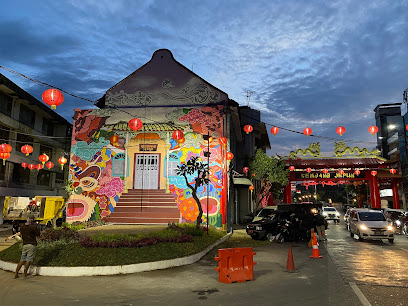
De Javasche Bank
Discover the historical essence of Indonesia at De Javasche Bank, a must-visit museum in Surabaya showcasing colonial heritage.
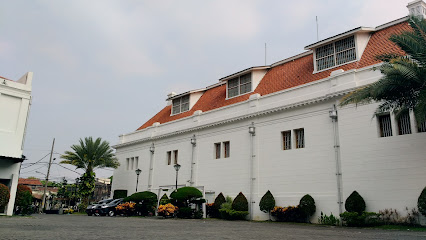
Taman Hiburan Rakyat
Explore Taman Hiburan Rakyat, Surabaya's premier amusement park, offering thrilling rides, lush gardens, and family-friendly fun for all ages.
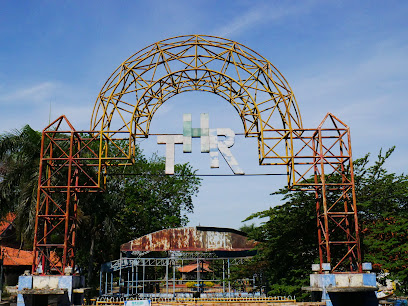
Kampoeng Lawas Maspati
Discover the vibrant heritage and culture of Surabaya at Kampoeng Lawas Maspati, a must-visit tourist attraction showcasing local crafts and cuisine.
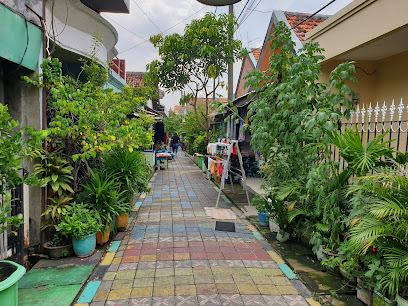
Museum W.R. Soepratman
Explore Indonesia's rich cultural heritage at Museum W.R. Soepratman, where art and history come alive in Surabaya.
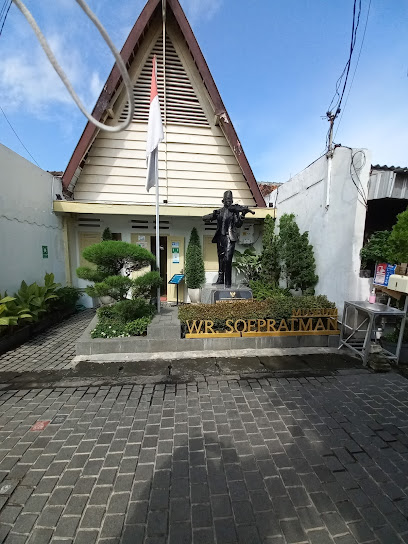
Kota Tua Surabaya
Explore the rich heritage and captivating colonial architecture of Kota Tua Surabaya, a must-see historical district in East Java.
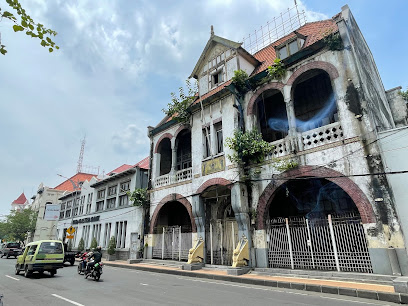
Religious Tourism MAmpel
Explore Religious Tourism MAmpel in Surabaya: A spiritual haven blending culture, history, and community experiences.
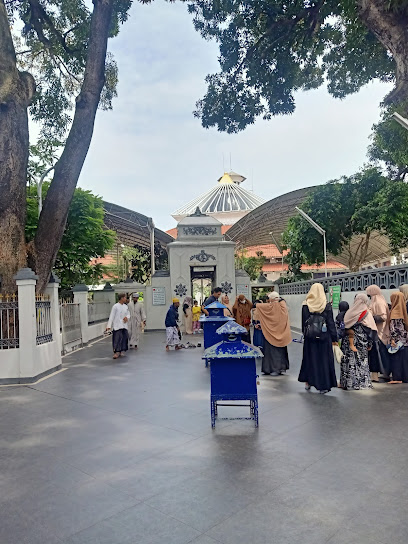
Essential places to dine
Depot King Ocean
Discover fresh seafood delights at Depot King Ocean - Surabaya's family-friendly destination for ocean-inspired cuisine.
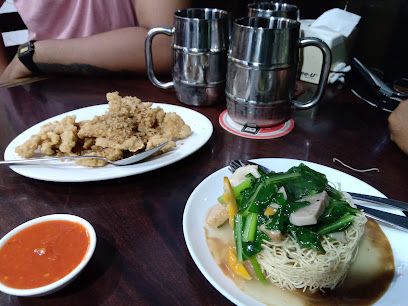
Kuliner Sahabat Simolawang
Experience authentic Indonesian flavors at Kuliner Sahabat Simolawang - famous for its nasi goreng, noodles, and satay in Surabaya.
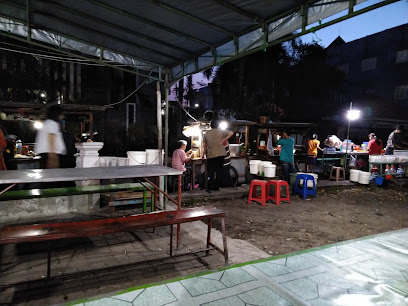
SANTOSO Resto
Experience authentic Indonesian cuisine at Santos Resto in Surabaya – where every dish tells a story of rich flavors and cultural heritage.
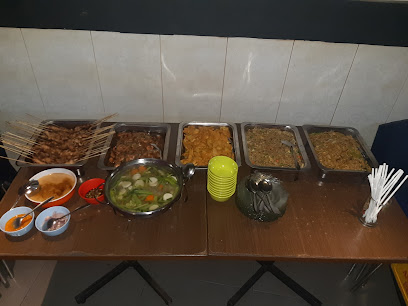
Kedai Dimsum Surabaya
Discover authentic dim sum at Kedai Dimsum Surabaya - where each bite tells a story of tradition and flavor.
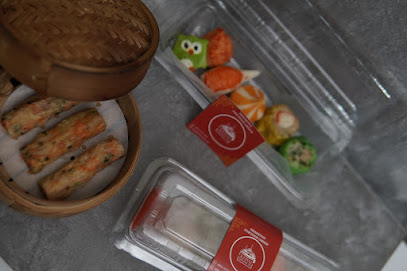
Dermaga Resto
Experience authentic Indonesian flavors with breathtaking waterfront views at Dermaga Resto in Surabaya.
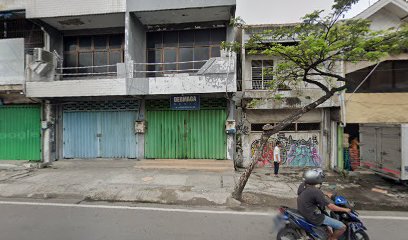
Warung Ericka
Experience authentic Indonesian brunch at Warung Ericka in Surabaya - where local flavors meet cozy ambiance.
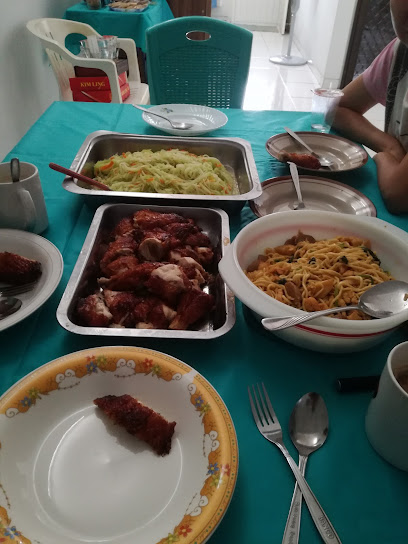
Tempe Penyet Simokerto
Savor authentic Indonesian flavors at Tempe Penyet Simokerto, a must-visit chicken restaurant in Surabaya's culinary scene.
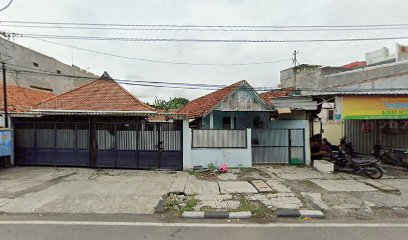
Gubuk Panganan Suroboyo
Discover authentic Indonesian cuisine at Gubuk Panganan Suroboyo in Surabaya – where every dish tells a story.
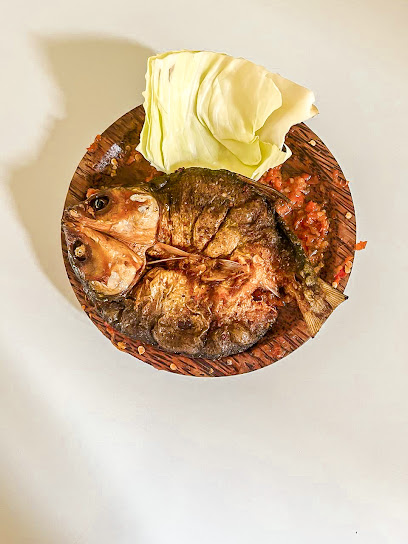
Madam Ling Kitchen
Discover authentic Indonesian flavors in a family-friendly atmosphere at Madam Ling Kitchen in Surabaya.
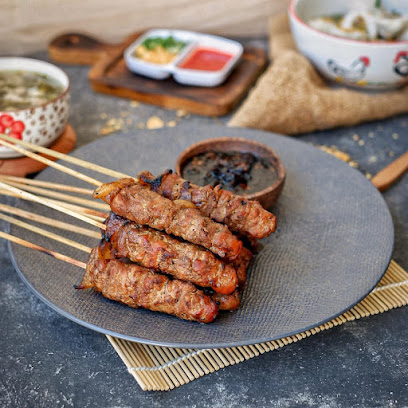
Warga J Gabut
Experience the vibrant fast food scene at Warga J Gabut in Surabaya - where quick bites meet local flavor.
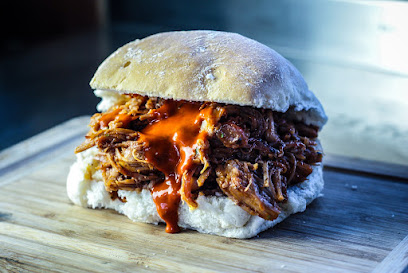
Markets, malls and hidden boutiques
Toko Ali
Explore the authentic taste of Indonesia at Toko Ali, Surabaya's vibrant grocery store offering local flavors and culinary treasures.
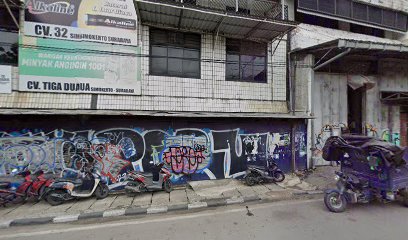
Tyas Store
Explore the charm of Tyas Store in Surabaya, where local craftsmanship meets warm hospitality, perfect for unique souvenirs and gifts.
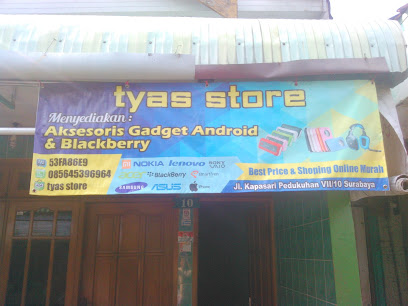
Keisha Store
Explore the enchanting Keisha Store in Surabaya for unique clothing and accessories that capture the spirit of East Java.
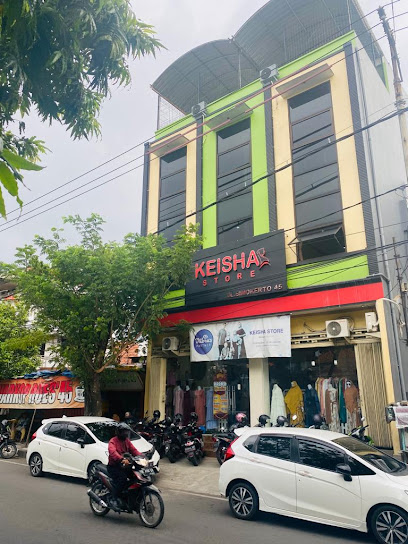
A. Gusge
Explore the heart of Surabaya at A. Gusge, your go-to gift shop for authentic East Java crafts and memorable souvenirs.
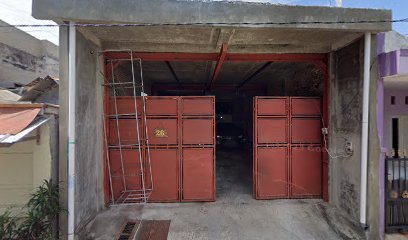
Ocean Shop
Explore the vibrant fashion scene at Ocean Shop, Surabaya's premier dress store offering unique styles and exceptional quality.

Luculucu
Explore Luculucu Gift Shop in Surabaya for authentic Indonesian souvenirs and local treasures that capture the essence of East Java's vibrant culture.
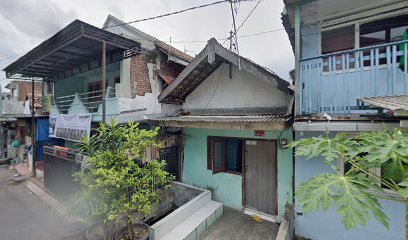
giyagi bouquet
Explore Giyagi Bouquet in Surabaya for exquisite floral arrangements and unique gifts that capture Indonesia's vibrant beauty.
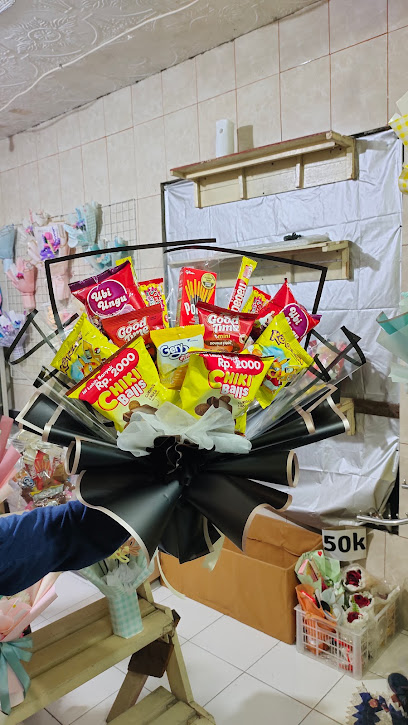
ZIDANE FASHION
Explore Zidane Fashion in Surabaya for trendy women's clothing that captures the essence of Indonesian style in a vibrant market setting.
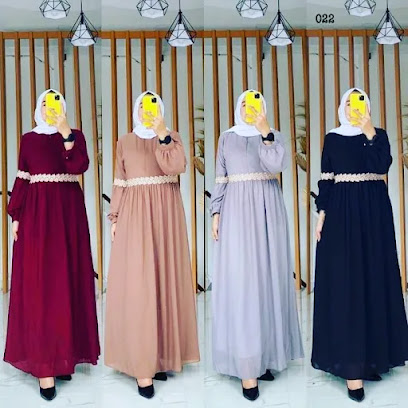
Ignes Castle_olshop
Explore Ignes Castle Olshop in Surabaya - a vibrant shopping destination filled with local crafts, diverse dining, and cultural experiences.

blank.co
Explore a fashionable women's clothing store in Surabaya, offering trendy apparel and accessories for every occasion.
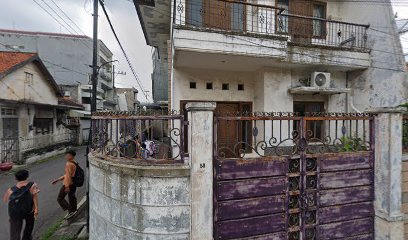
Essential bars & hidden hideouts
Our Bar
Experience the vibrant atmosphere of Our Bar in Surabaya, where delicious grilled dishes meet captivating live music for an unforgettable night out.
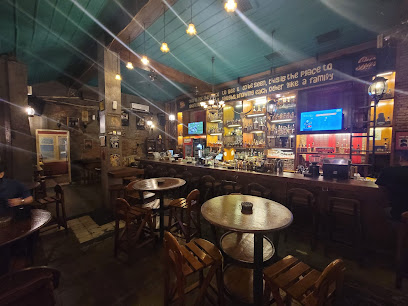
Old Wood Bistro
Discover the perfect blend of live music and culinary delights at Old Wood Bistro, Surabaya's most vibrant dining destination.
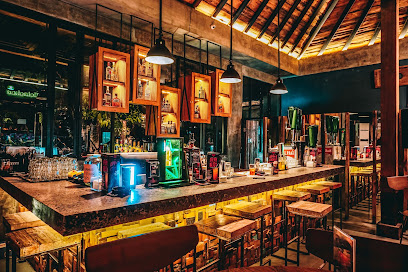
NEON by Brassery
Experience the vibrant nightlife at NEON by Brassery, a lively bar and nightclub in Surabaya offering exceptional drinks and unforgettable ambiance.
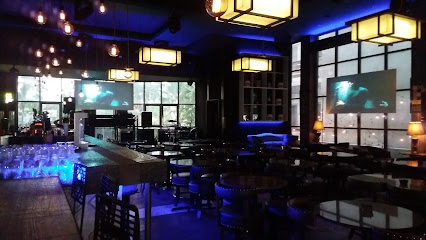
COLORS PUB & RESTAURANT
Discover the lively ambiance of COLORS PUB & RESTAURANT in Surabaya, where great food, live music, and vibrant culture come together for an unforgettable experience.
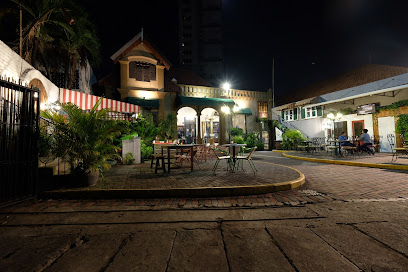
HOPS Kitchen & Bar
Experience the vibrant flavors of Surabaya at HOPS Kitchen & Bar, where culinary delights meet a lively atmosphere for an unforgettable dining experience.
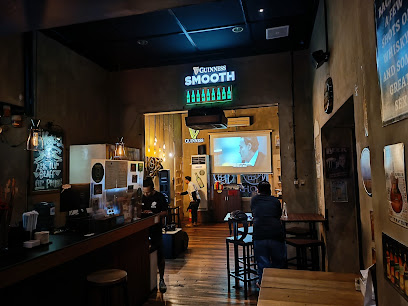
Breakshot
Experience the vibrant nightlife at Breakshot, Surabaya's top karaoke bar, where great food, drinks, and endless singing await.
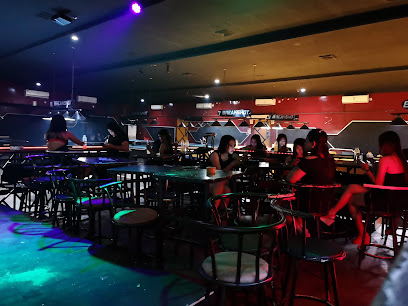
Geldbang Bar & Lounge
Discover the lively ambiance of Geldbang Bar & Lounge in Surabaya, where live music, delicious drinks, and dancing come together for an unforgettable night out.
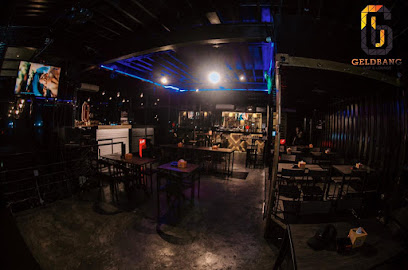
TRIBES Bar & Lounge
Discover the vibrant nightlife of Surabaya at TRIBES Bar & Lounge, where live music meets crafted cocktails in a lively atmosphere.
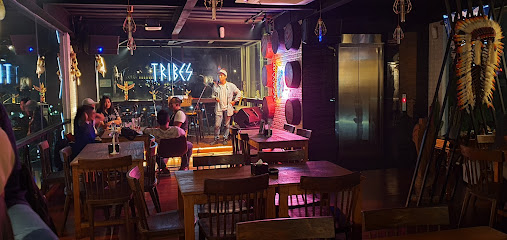
Depot 136
Experience the vibrant nightlife and culinary delights of Depot 136, a premier bar and restaurant in Surabaya offering a delightful fusion of flavors.
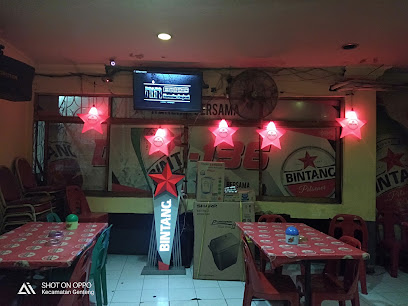
Denny Satria
Experience the vibrant nightlife of Surabaya at Denny Satria, where local culture meets friendly ambiance in a lively bar setting.
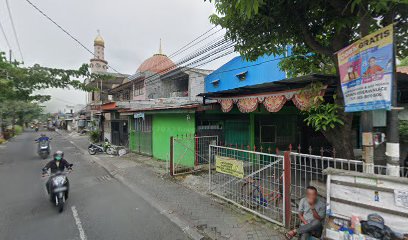
Local Phrases
-
- HelloHalo
[ha-lo] - GoodbyeSelamat tinggal
[se-la-mat ting-gal] - YesYa
[ya] - NoTidak
[ti-dak] - Please/You're welcomeSilakan
[si-la-kan] - Thank youTerima kasih
[te-ri-ma ka-sih] - Excuse me/SorryMaaf
[ma-af] - How are you?Apa kabar?
[a-pa ka-bar] - Fine. And you?Baik. Dan kamu?
[ba-ik. dan ka-mu] - Do you speak English?Apakah kamu bisa berbahasa Inggris?
[a-pa-kah ka-mu bi-sa ber-ba-ha-sa ing-gris] - I don't understandSaya tidak mengerti
[sa-ya ti-dak men-ger-ti]
- HelloHalo
-
- I'd like to see the menu, pleaseSaya ingin melihat menu, silakan
[sa-ya in-gin me-li-hat me-nu, si-la-kan] - I don't eat meatSaya tidak makan daging
[sa-ya ti-dak ma-kan da-ging] - Cheers!Selamat minum!
[se-la-mat mi-num] - I would like to pay, pleaseSaya ingin membayar, silakan
[sa-ya in-gin mem-ba-yar, si-la-kan]
- I'd like to see the menu, pleaseSaya ingin melihat menu, silakan
-
- Help!Tolong!
[to-long] - Go away!Pergi!
[per-gi] - Call the Police!Panggil polisi!
[pang-gil po-li-si] - Call a doctor!Panggil dokter!
[pang-gil dok-ter] - I'm lostSaya tersesat
[sa-ya ter-se-sat] - I'm illSaya sakit
[sa-ya sa-kit]
- Help!Tolong!
-
- I'd like to buy...Saya ingin membeli...
[sa-ya in-gin mem-be-li] - I'm just lookingSaya hanya melihat-lihat
[sa-ya hu-nya me-li-hat-li-hat] - How much is it?Berapa harganya?
[be-ra-pa har-ga-nya] - That's too expensiveItu terlalu mahal
[i-tu ter-la-lu ma-hal] - Can you lower the price?Bisa ditawar?
[bi-sa di-ta-war]
- I'd like to buy...Saya ingin membeli...
-
- What time is it?Sekarang jam berapa?
[se-ka-rang jam be-ra-pa] - It's one o'clockSekarang pukul satu
[se-ka-rang pu-kul sa-tu] - Half past (10)Setengah (10)
[se-ten-gah (10)] - MorningPagi
[pa-gi] - AfternoonSore
[so-re] - EveningMalam
[ma-lam] - YesterdayKemarin
[ke-ma-rin] - TodayHari ini
[ha-ri i-ni] - TomorrowBesok
[be-sok] - 1Satu
[sa-tu] - 2Dua
[du-a] - 3Tiga
[ti-ga] - 4Empat
[em-pat] - 5Lima
[li-ma] - 6Enam
[e-nam] - 7Tujuh
[tu-juh] - 8Delapan
[de-la-pan] - 9Sembilan
[sem-bi-lan] - 10Sepuluh
[se-pu-luh]
- What time is it?Sekarang jam berapa?
-
- Where's a/the...?Di mana ada/ada...
[di ma-na a-da/a-da] - What's the address?Apa alamatnya?
[a-pa a-la-mat-nya] - Can you show me (on the map)?Bisa tunjukkan saya (di peta)?
[bi-sa tun-juk-kan sa-ya (di pe-ta)] - When's the next (bus)?Kapan yang berikutnya (bus)?
[ka-pan yang be-ru-ti-nya (bus)] - A ticket (to ....)Satu tiket (ke ....)
[sa-tu ti-ket (ke ....)]
- Where's a/the...?Di mana ada/ada...
History of Simokerto
-
Simokerto's history can be traced back to the early days of Surabaya, which was established as a port city in the 13th century. Situated near the banks of the Kalimas River, Simokerto served as an essential community for traders and fishermen, contributing to the economic foundation of the region.
-
During the Dutch colonial period in the 18th and 19th centuries, Simokerto experienced significant development. The Dutch established trade routes that connected Simokerto to other regions, leading to the growth of local industries, particularly fishing and agriculture. The neighborhood's strategic location made it a vital point for trade and commerce.
-
The Japanese occupation of Indonesia from 1942 to 1945 brought about drastic changes in Simokerto. The community faced harsh restrictions and forced labor, as the Japanese sought to exploit local resources. However, this period also sparked a sense of nationalism among the local population, setting the stage for post-war independence movements.
-
Following Indonesia's independence in 1945, Simokerto became a hub for new settlers and migrants from various parts of the archipelago. The influx of people contributed to the neighborhood's cultural diversity, with various ethnic groups coexisting and enriching the local traditions and customs.
-
In contemporary times, Simokerto has evolved into a vibrant neighborhood, blending modernity with its rich history. Local festivals, traditional markets, and community events reflect the cultural heritage of Surabaya. The neighborhood is also known for its culinary scene, offering a variety of traditional Indonesian dishes that showcase the flavors of East Java.
Simokerto Essentials
-
Simokerto is easily accessible from various neighbourhoods in Surabaya. The neighbourhood is approximately 10 km from the city center, and you can reach it via public transportation. Local buses (angkot) run frequently from major hubs like Tunjungan Plaza and Gubeng Station. Alternatively, taxis and ride-hailing services like Gojek and Grab are convenient options for a more direct route.
-
Simokerto is a compact neighbourhood, making it easy to explore on foot. For longer distances, local angkots and ojek (motorcycle taxis) are available. Bicycles can also be rented from local shops for a more leisurely exploration of the area. Public buses connect Simokerto to other parts of Surabaya, ensuring accessibility.
-
Simokerto is generally safe for tourists; however, it is advisable to remain vigilant. Areas near the Simokerto market can be crowded, so keep an eye on your belongings. While violent crime is rare, petty theft can occur, especially in bustling local markets. Avoid walking alone at night in less populated areas.
-
In case of emergency, dial 112 for police assistance or 119 for medical emergencies. Several hospitals and clinics are available in and around Simokerto. It is recommended to have travel insurance that covers emergencies. For minor health issues, local pharmacies can provide basic over-the-counter medications.
-
Fashion: Do dress modestly, especially when visiting local religious sites. Avoid revealing clothing. Religion: Do respect local customs and practices; covering your shoulders and knees is recommended in places of worship. Public Transport: Do be courteous, especially to the elderly. Don't eat or drink on public transport. Greetings: Do greet locals with a smile and a nod. A handshake is also common. Eating & Drinking: Do try local street food, but ensure it's from clean stalls. Don't refuse food or drink offers as it may offend your hosts.
-
To experience Simokerto like a local, visit the bustling Simokerto Market early in the morning for fresh produce and local delicacies. Engage with vendors for insight into local life. For a unique experience, attend community events, which can often be found advertised on local bulletin boards. Don't miss the chance to explore the nearby historical sites, including traditional Javanese houses.
Trending Landmarks in Simokerto
Nearby Cities to Simokerto
-
Things To Do in Semarang
-
Things To Do in Yogyakarta
-
Things To Do in Bali
-
Things To Do in Bandung
-
Things To Do in Jakarta
-
Things To Do in Makassar
-
Things To Do in Balikpapan
-
Things To Do in Settlement
-
Things To Do in Poon Saan
-
Things To Do in Flying Fish Cove
-
Things To Do in Drumsite
-
Things To Do in Greta Beach
-
Things To Do in Kuching
-
Things To Do in Miri
-
Things To Do in Kuala Belait








